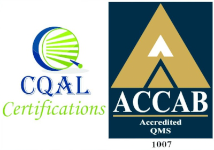The Client
A leading drug manufacturer was seeking ways to enhance its customer support teams for its flagship product, a type of insulin. Customer support teams are responsible for keeping customers informed about the product(s), respond to questions related to product or customer accounts, and process customer feedback. The manufacturer had been using Salesforce Sales Cloud and Marketing Cloud to facilitate customer engagement and gather data that enhanced understanding of patient journeys.
The Challenge
The organization used Salesforce Sales Cloud to track basic customer interactions like phone calls and emails and Marketing Cloud for basic marketing automation. Customer support teams sought outside help to expand on the capabilities of both to include intuitive, user-friendly functionality that would enhance customer engagement, such as embedded email and SMS functionality.
The Solution
The manufacturer selected Excellarate as a certified Salesforce partner with extensive domain expertise in the pharmaceutical and healthtech industries. Excellarate partnered closely with the client to better understand their goals and achieve optimal results.
Excellarate engineers configured and embedded email and SMS functionality into both the Salesforce Sales Cloud and Marketing cloud applications to provide customer support with tools that were simple to use, but could dramatically impact the overall customer experience.
Excellarate integrated several platforms including Salesforce Sales Cloud, Salesforce Marketing Cloud, Einstein Analytics, 3rd party integrations to Wyng, WP Forms and Appreciation Engine leveraging the Dell Boomi cloud-based integration platform and employing multiple technologies including Apex, REST, SOAP API, Asynchronous Apex, Process Builder, Flows, Lightning Components, Lightning App Builder, VF Pages, VF Components and SOQL/SOSL.
The Outcome
The new email and SMS functionality in Salesforce Sales Cloud and Marketing Cloud established a new baseline for the customer experience, from which future enhancements, processes, and experiences would scale.
Simplifying communications improved the experience for patients and customers which increased engagement. Enhanced engagements generated better data in higher volumes, providing insight to be leveraged in future sales, marketing, and customer support strategies. Ultimately for the manufacturer, Salesforce became more than just a simple tracking tool and evolved into a strategic asset that drives enhanced, effective customer and marketing experiences.













